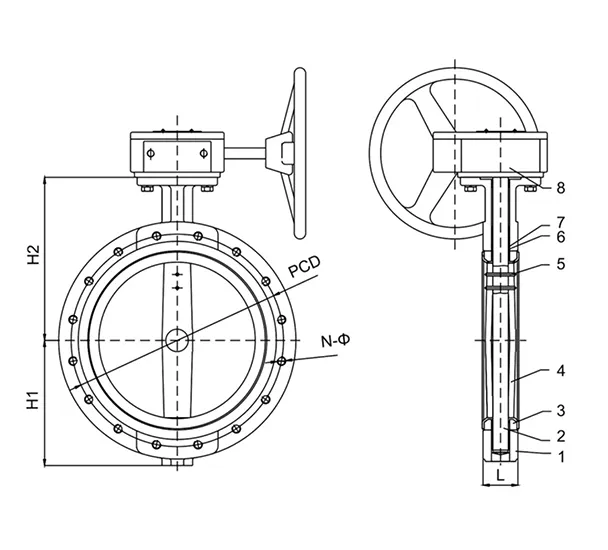Dec . 10, 2024 06:18 Back to list
flanged ball valve
Understanding Flanged Ball Valves Design, Function, and Applications
Flanged ball valves are critical components in various industrial applications where the control of fluid flow is essential. These valves feature a distinctive design that includes a spherical disc, known as the ball, which rotates to open or close the flow of fluids. The flanged ends allow for secure attachment to piping systems, ensuring a leak-free and robust seal. In this article, we will explore the design, operation, advantages, and applications of flanged ball valves.
Design and Construction
Flanged ball valves are typically made from materials such as stainless steel, carbon steel, or plastic, depending on the application and the type of fluid being controlled. The defining feature of a flanged ball valve is its flanges, which are horizontal pieces extending from the valve body. These flanges have holes that align with the corresponding holes on adjoining pipes, allowing for bolted connections.
The internal structure comprises a ball with a hole through the center, permitting fluid flow. When the valve is closed, the ball rotates 90 degrees so that the hole is perpendicular to the flow path, effectively stopping fluid flow. Conversely, when the valve is opened, the ball is rotated to align the hole with the flow, allowing fluids to pass through.
Functionality
The operation of a flanged ball valve is remarkably straightforward. It can be operated manually using a lever or automatically with actuators driven by electrical, hydraulic, or pneumatic power. The design enables quick operation—typically full open to full closed within a quarter turn—which minimizes the time required to control fluid flow.
One of the significant advantages of flanged ball valves lies in their sealing mechanism. Ball valves employ a soft seat, which enhances the sealing ability and allows for a tight closure. When closed, the ball presses against the seat, offering excellent resistance to leakage. This characteristic makes flanged ball valves suitable for applications requiring a high degree of sealing integrity.
Advantages of Flanged Ball Valves
1. Durability Flanged ball valves are built to withstand high pressures and temperatures, making them suitable for diverse applications across many industries, including oil and gas, chemical processing, and water treatment.
flanged ball valve

2. Low Maintenance These valves require minimal maintenance due to their simple design and robust construction. The materials used are often resistant to corrosion, further enhancing their longevity and reliability.
3. Versatility Flanged ball valves come in various sizes and configurations, making them versatile for different flow control requirements. They can handle various media, including gases, liquids, and slurries.
4. Ease of Installation The flanged design allows for straightforward installation and removal, simplifying maintenance and replacement processes without significant downtime.
Applications
Flanged ball valves are used in numerous applications across multiple sectors. In the oil and gas industry, they are employed in pipelines for upstream and downstream operations. They are vital for controlling the flow of crude oil, natural gas, and refined products.
In the chemical processing industry, these valves are used to manage caustic and corrosive substances. The ability to maintain tight seals is crucial here to prevent leaks that could pose safety hazards and environmental risks.
Water and wastewater treatment facilities also utilize flanged ball valves to control the flow of treated water and sludge. Their durability and reliability are paramount in these settings, where operational efficiency is essential.
In heating, ventilation, and air conditioning (HVAC) systems, flanged ball valves facilitate the control of flow in piping systems, ensuring optimal performance and energy efficiency.
Conclusion
Flanged ball valves represent an essential technology in fluid control within various industries. Their durable construction, ease of operation, and low maintenance requirements make them a favored choice among engineers and operators alike. As industries continue to embrace automation and the demand for reliable flow control systems grows, flanged ball valves will undoubtedly play a vital role in future applications. Understanding their function and advantages allows professionals to make informed decisions regarding fluid control solutions in their operations.
Share
-
Reliable Wafer Type Butterfly Valves for Every IndustryNewsJul.25,2025
-
Reliable Flow Control Begins with the Right Ball Check ValveNewsJul.25,2025
-
Precision Flow Control Starts with Quality ValvesNewsJul.25,2025
-
Industrial Flow Control ReliabilityNewsJul.25,2025
-
Engineered for Efficiency Gate Valves That Power Industrial PerformanceNewsJul.25,2025
-
Empowering Infrastructure Through Quality ManufacturingNewsJul.25,2025